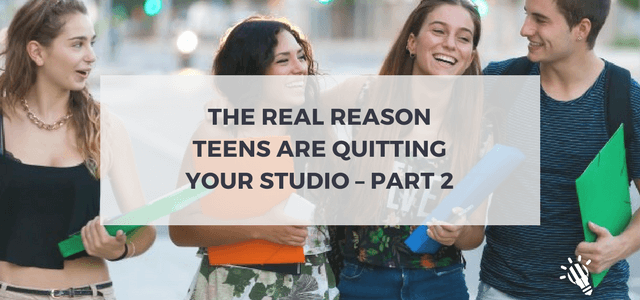 Why write about teens?
Why write about teens?I decided to write a short series about teaching teens because there seems to be a lot of teachers out there for whom teaching teens is becoming a bit of a struggle. You might have read their posts on piano teaching groups, wondering aloud why teenagers don’t want to have lessons any more:
“I let them learn ‘The Entertainer’ but they still want to quit. I don’t get it – isn’t that a ‘cool’ piece? All my students start with Alfred’s Primer Book A – why should teenagers be any different? Who doesn’t get their students to learn “Dozen a Day” every week? What’s wrong with Baroque music – that’s all I learnt when I was a student! Why can’t they spend 30 minutes a day practising scales? Why do they want to play this video game rubbish? I can’t possibly teach pop music! Playing jazz isn’t as important as classical music anyway…”
Thankfully, it only takes a few simple ideas and resources to change your thinking about teens and to keep them motivated in their studies and your studio.

In the first part of the series, I discussed that teachers of teenagers have to be open to teaching the music their students want to play.
I gave readers three tips in Part 1 that they could immediately try in their studio:
In this part of the series, I’ll be talking about the second reason that teens quit piano: You aren’t making music relevant.
Teenagers need to see the relevance in what they are doing and they need to be working towards goals that they set themselves. (With your help, of course!).
If all they do when they come to lessons is show you something they’ve composed, then teach them more about composing. If they always come to lessons having learnt something by ear, encourage it and give them a deeper understanding of harmony and form to enable them to make their own arrangements of melodies they can play by ear.
Andrea Dow, in her article, “How to rescue the unmotivated teenage piano student“, calls these kinds of piano lessons “functional piano lessons”:
What are “functional piano lessons”? They are lessons based on meeting the interests of your student; giving them the specific skills they need to use the piano in a way that motivates them.
I’m not saying that just because Billy likes playing by ear that we should drop all attempts to teach him anything else; rather, use his natural style of learning to motivate and engage him in other aspects of music: eg. reading, composing, improvising, etc., while you work on the thing that motivates him each week to play the piano.

How do you find out what motivates your teens?
If he/she is a new student, just ask. Not all teens will know what they like and some will say, “I don’t know – I’ll just let you choose”, but soon enough you’ll get a feeling for what they like to practice versus what turns them off.
If the student has been with you for a while and is starting to fade, you might have missed the signals. What are they listening to on their iPod when they wait for their lessons? What do they teach themselves when they are “mucking around” at the piano? And what YouTube tutorials have they been watching without telling you? What concert did they most recently go to? Are they in the school band/orchestra/choir/play?
A little research will go a long way!
I understand that if you’ve never taught students to compose before, this could seem like a daunting challenge. Similarly, perhaps you don’t refer to chords, harmony or the Circle of 5ths when teaching reading. Don’t stress! Just take it in small steps. Set aside perhaps 1 hour per week to research teaching ideas on blogs/Google and try them out in your studio the following week. Click here for a list of what a search for “chords” uncovered on my blog, for example.
Good luck and I look forward to hearing how it goes!
In Part 3 of this series next week, I’ll be talking about the final piece in the teen motivation puzzle: why it’s important for teachers to keep up with technology.
We’ll discuss:
To ensure you don’t miss the final Part 3, make sure you subscribe to blog updates. If you’re looking for more ideas on motivating teenage students and can’t wait for Part 3, you can also check out my free eBook: Teen Teaching Toolkit – there’s a link to it in the menu at the top.
Click here for The Real Reason Teens Are Quitting Your Studio – Part 1
Click here for The Real Reason Teens Are Quitting Your Studio – Part 3: Technology

Di Cridge says:
Hi Tim, Everything you are doing is so helpful, thank you.
I tried to purchase a book you recommended called Scales Bootcamp by Phillip Johnston from my local music store but they are unable to get it in for me can you let me know where I can purchase that book please? You may have already told us and I have missed it but if you can point me in the right direction I would be greatful
. Di
Michael says:
Hi Tim–loved this post. Really happy I found your blog!
I think you are dead on with number one. I think it’s always important to remember that playing or practicing the piano has to be a genuinely enjoyable experience for the student. And that begins with the music that’s being played. Kids need to be able to relate to it, enjoy it, and have fun. I think it’s far easier to learn when you are enjoying what you’re trying to comprehend, rather than fighting it.
I also love what Wendy has done. Her “Booger Song” is absolutely hilarious (granted, for kids a little younger than teens most likely), and I think that overall vibe of adapting to your students interests and passions, likes and dislikes, is crucial.
-Michael
Tim Topham says:
Hi Michael
Many thanks for your comments – I’m really glad my article has supported your own thoughts on teaching teens. Let’s hope the idea rubs-off on more and more teachers!
Yes, Wendy has some awesome material – another great blog to follow.
All the best,
Tim.
Di Cridge says:
Hi Tim,
Do you have any suggestions for students who have a very good ear for music and really don’t want to know about learning to read the notes.
Also I have bought a digital piano with USB and an ipad can you let me know which ipad apps can be used plugged into the piano so you actually play the keys of the piano , I am using Noteworks. I mean apps for learning to read as I think this student would respond to the ipad idea to teach him notes. (He does noteworks, but I was wondering if there are more apps you could recommend to give him variety) I have had this student for awhile and he is just lazy because it is easier for him to use his ear. (I am sure you know what I mean) he is very musical and I would love to bring him into the world of reading the notes so he can combine his listening skills with note reading. He is up to Preliminary level SCSM. Di
Tim Topham says:
Hi Di.
Re your first question, it’s very hard to get kids to learn to read if they’re dead against it. I’m assuming this is probably a teen or adult? When confronted with this kind of issue, I do everything I can to show how “cool” being able to read music is, even if I have to show off and demonstrate how I play just about anything and ‘isn’t that cool?’.
If you can get them interested, then I suggest continuing in lesson time with music they want to play – learning by ear, YouTube tutorials, learning about chord charts, etc. – and indispersing that with music reading activities, starting at the beginning. Remember to remind them that the easy music they are learning from a method book or sight-reading book is not for performance, it’s just to help learn to read music. Encourage them to continue to do their own music on the side. I’ve helped plenty of non-reading teens become readers via this method.
Re your app question, take a look at Piano Notes Pro (and I think Tenuto) on my page https://topmusic.co/best-ipad-apps-for-piano-teachers/. Both interconnect with MIDI and allow you to practice note reading. There are probably others – good idea to just Google it. Also check out http://ipadpianostudio.com/.
Hope that helps!
Susan Paradis says:
Tim,
All I can say is brilliant! This is what I have been trying to say for so many years, but you have nailed it!
Tim Topham says:
Hi Susan! Thanks so much for your feedback – it certainly means a lot coming from you 🙂 I hope you like what I’ve got coming in Part 3 🙂
All the best,
Tim.
Di Cridge says:
Hi Tim,
Just want to let you know how HELP FULL all the videos and write ups and EVERYTHING you are making available to us as teachers is. You are sharing so many encouraging ideas and the videos especially give really clear and useful ‘snipits’ of information that can be used in my lessons. My students are benefitting from your generosity.
Also I bought the book you suggested ‘Coffee With Ray’ ABSOLUTELY WONDERFUL BOOK (my thoughts completely, being a surviver of the ‘old school’ approach of being taught the piano)
I had developed a lot of the author’s ideas in my own teaching out of my bad experiences and it was refreshing to read. Thank you Di
Tim Topham says:
Hi Di
Thanks so much for your feedback – I’m pleased that my ideas have been helping you and your students. That’s what the whole blog is about, after all! I’m also glad you liked the book – Nick has produce something really special I think.
Is there anything in particular you’d like me to write/blog about that would be useful for your teaching? Or any products I could make available that you would find helpful? I’m always happy for reader suggestions!
All the best,
Tim.
Di Cridge says:
Hi Tim, You mentioned it is a good idea to let the students compose their own music. I have a lot of students who I feel would enjoy doing that.
My question is that I am not really confident in composition myself, do you have any suggestion for me to be able to learn more so I can help those student who would like to be able to compose their own music?
I am very interested in learning more about composition.
Di
Tim Topham says:
HI Di. Yes, I’m a big believer in creativity through composition/improvising. Have you looked at my post: https://topmusic.co/strategies-for-teaching-improvisation-to-beginners/
This would be a good place to get started.
I’ve got more topics like that in the pipeline 🙂